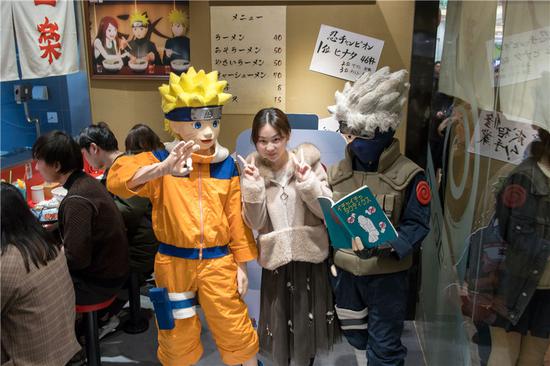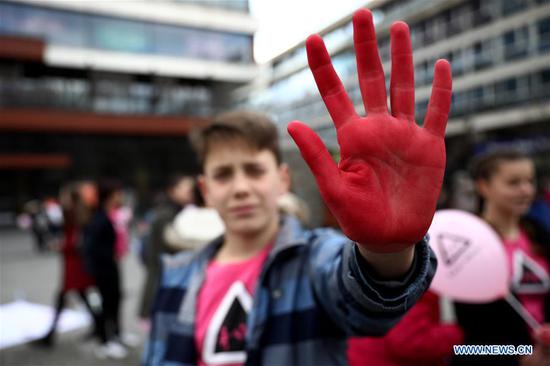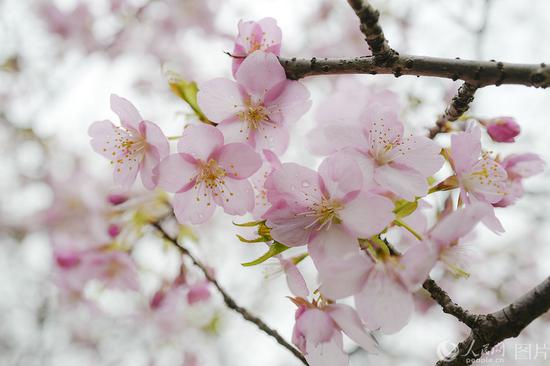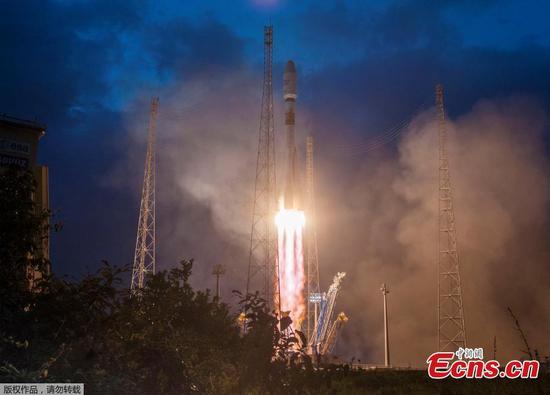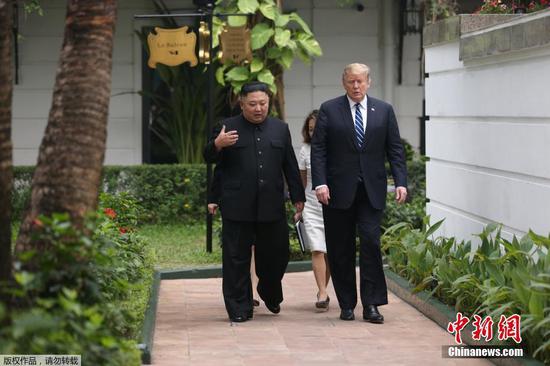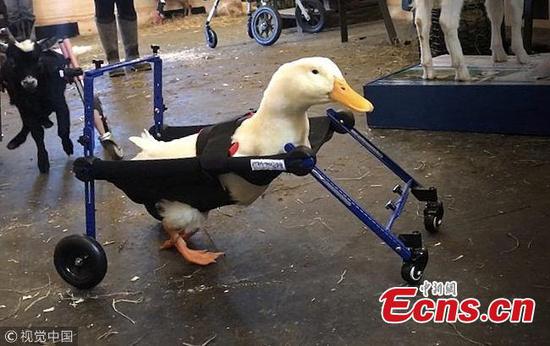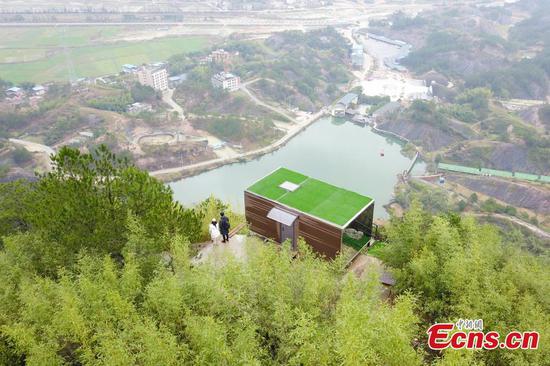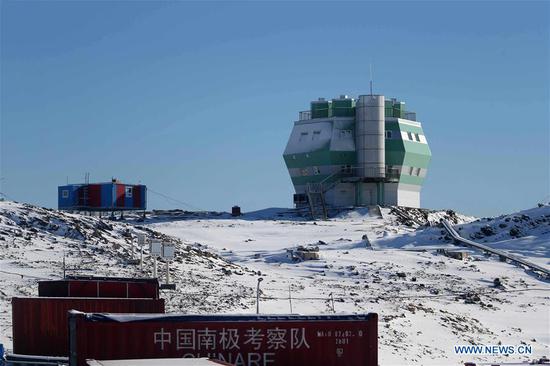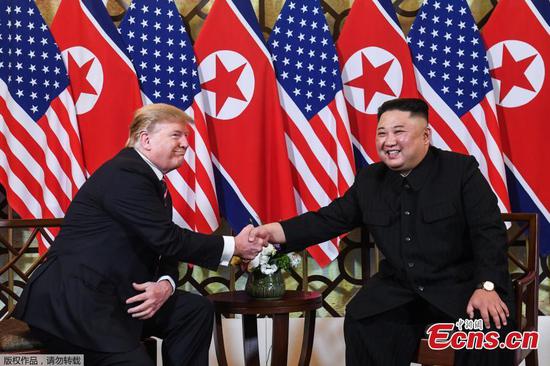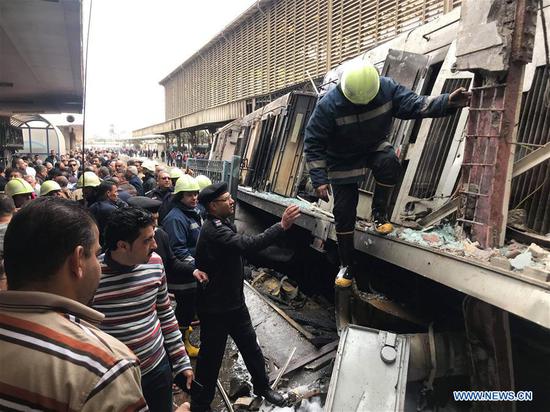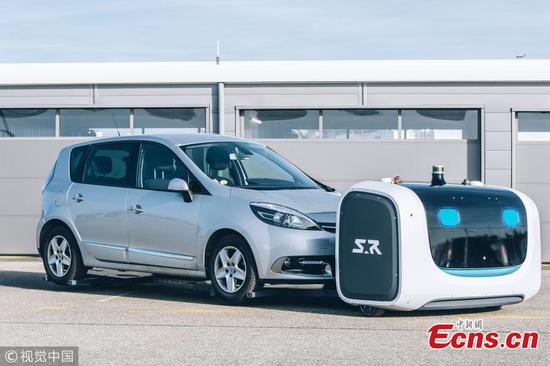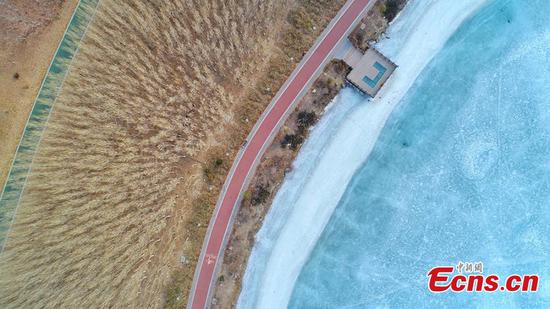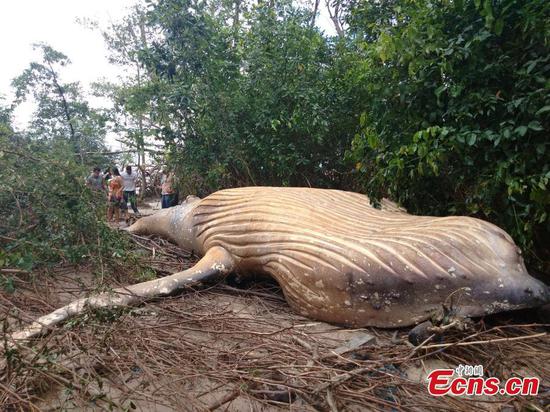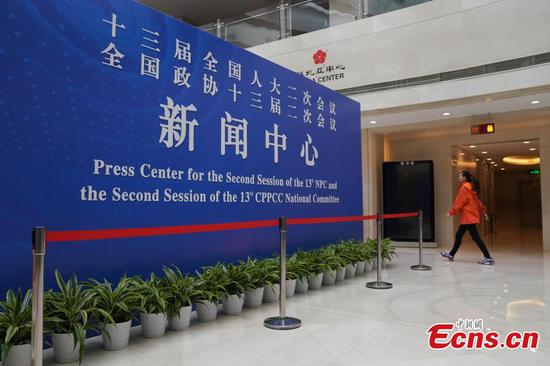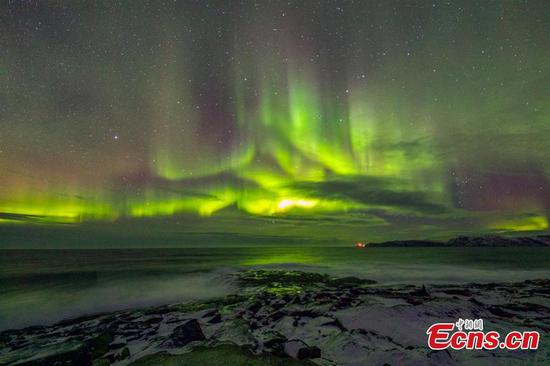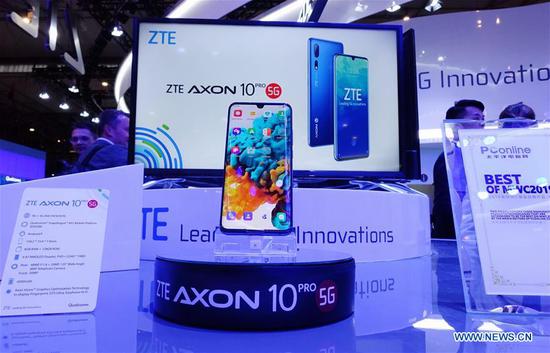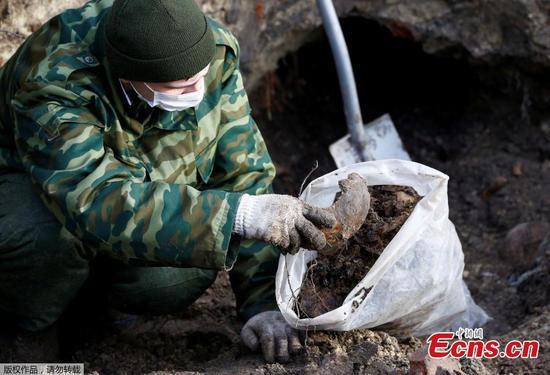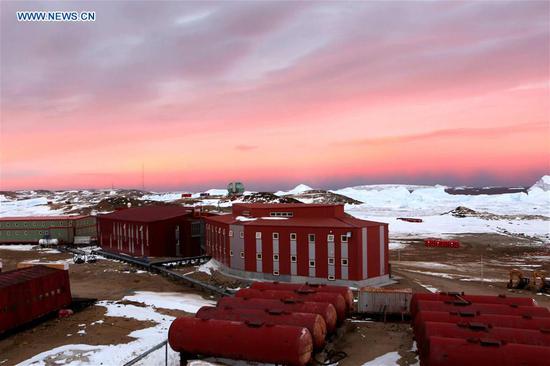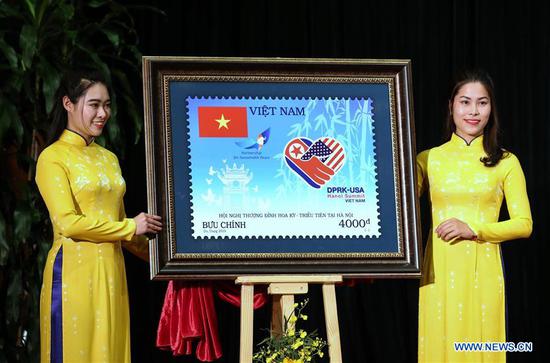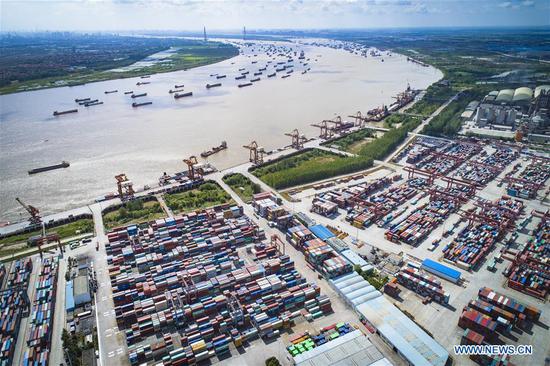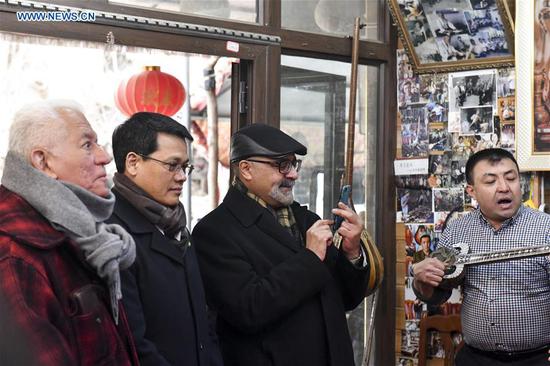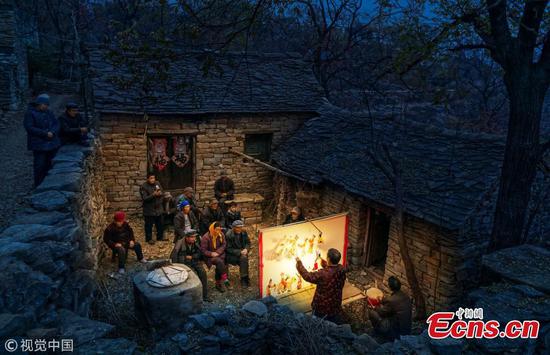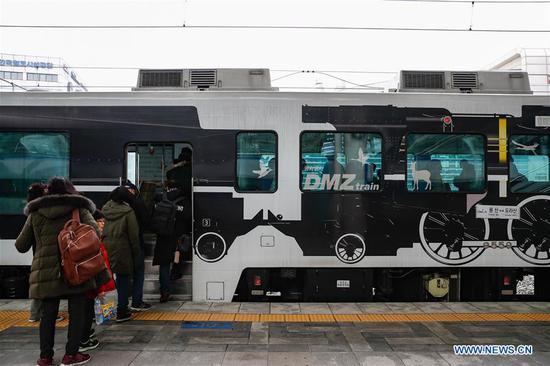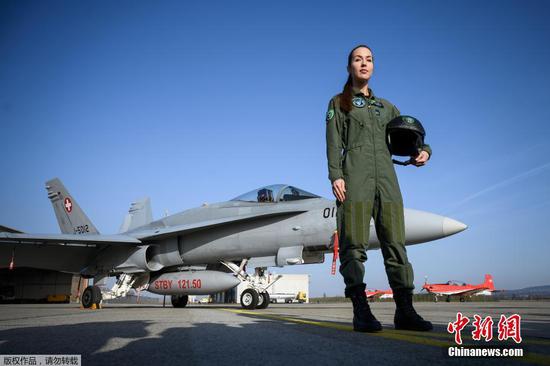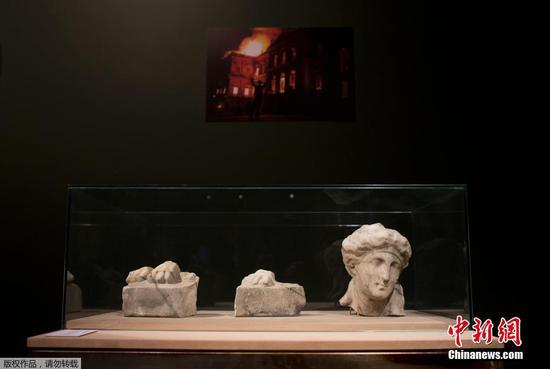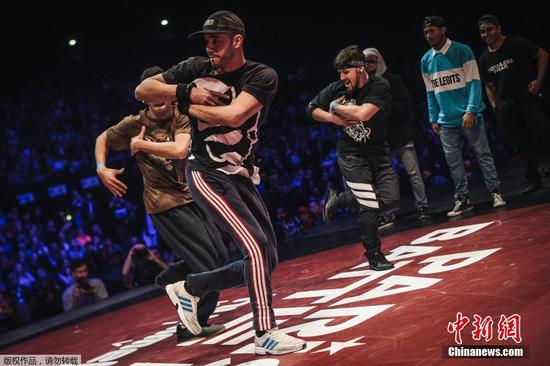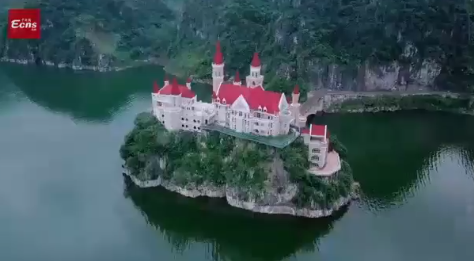
Syrian Ambassador to the United Nations Bashar Jaafari (top R) attends a Security Council meeting on Venezuela, at the UN headquarters in New York, Feb. 28, 2019. The UN Security Council on Thursday failed to adopt two competing draft resolutions on Venezuela, sponsored by the United States and Russia respectively. (Xinhua/Li Muzi)
The UN Security Council on Thursday failed to adopt two competing draft resolutions on Venezuela, sponsored by the United States and Russia respectively.
The U.S. draft received nine votes in favor, three against, and three abstentions in the 15-member council. Russia and China, as well as South Africa, vetoed the resolution.
Minutes later, the Security Council voted on the Russian draft, which received four votes in favor, seven against and four abstentions.
The U.S. draft stresses the need to prevent further deterioration of the humanitarian situation in Venezuela and to facilitate unhindered access and delivery of assistance to all in need in the entirety of the territory of Venezuela in accordance with humanitarian principles.
The Russian draft, on the contrary, calls that international assistance should be provided with the consent of, and on the basis of an appeal by, the government of Venezuela. It also urges the settlement of the current situation through peaceful means and supports all initiatives aimed at reaching a political solution among Venezuelans.
Thursday's Security Council meeting is the third on the situation in Venezuela in just over a month due to the escalation of political tension facing the Latin American country.
Vassily Nebenzia, Russia's permanent representative to the UN, said that the meeting "may be exploited as a step for preparations of a real, not humanitarian, intervention," adding that it may cause the alleged inability of the Security Council to resolve the situation in Venezuela.
"At the Security Council, on the Venezuelan issue, our starting point is to uphold the spirit of the UN Charter and the basic principles governing international relations, promote a peaceful settlement of the Venezuelan issue and maintain long-term peace, stability and development in Latin America," said Wu Haitao, China's deputy permanent representative to the UN.
China opposes external forces interfering in Venezuela internal affairs and opposes military intervention in Venezuela, he stressed.
Venezuela has been plunged into a political crisis since Jan. 23 when National Assembly President Juan Guaido declared himself interim president and was recognized by the United States and some other countries.
A U.S.-backed drive to deliver "humanitarian aid" to Venezuela through border crossings on Feb. 23 met strong resistance from the Venezuelan government as President Nicolas Maduro believed the aid, mainly from the United States, is a smokescreen for a military invasion.
The Venezuelan government has d borders with Brazil and Colombia and some air and sea routes.

Samuel Moncada (front), Venezuela's Permanent Representative to the United Nations, addresses a Security Council meeting on Venezuela, at the UN headquarters in New York, Feb. 28, 2019. The UN Security Council on Thursday failed to adopt two competing draft resolutions on Venezuela, sponsored by the United States and Russia respectively. (Xinhua/Li Muzi)

Samuel Moncada, Venezuela's Permanent Representative to the United Nations, addresses a Security Council meeting on Venezuela, at the UN headquarters in New York, Feb. 28, 2019. The UN Security Council on Thursday failed to adopt two competing draft resolutions on Venezuela, sponsored by the United States and Russia respectively. (Xinhua/Li Muzi)

British Ambassador to the United Nations Karen Pierce (C, front) speaks after the UN Security Council failed to adopt a Russia-drafted resolution on Venezuela, at the UN headquarters in New York, Feb. 28, 2019. The UN Security Council on Thursday failed to adopt two competing draft resolutions on Venezuela, sponsored by the United States and Russia respectively. (Xinhua/Li Muzi)

U.S. Special Representative for Venezuela Elliott Abrams (R, front) and British Ambassador to the United Nations Karen Pierce (L, front) vote against a Russia-drafted resolution on Venezuela at the UN headquarters in New York, Feb. 28, 2019. The UN Security Council on Thursday failed to adopt two competing draft resolutions on Venezuela, sponsored by the United States and Russia respectively. (Xinhua/Li Muzi)

Elliott Abrams (C, front), U.S. Special Representative for Venezuela, votes in favor of a U.S.-drafted resolution on Venezuela at the UN headquarters in New York, Feb. 28, 2019. The UN Security Council on Thursday failed to adopt two competing draft resolutions on Venezuela, sponsored by the United States and Russia respectively. (Xinhua/Li Muzi)

Elliott Abrams (L), U.S. Special Representative for Venezuela, talks with Russian Permanent Representative to the United Nations Vassily Nebenzia, prior to a Security Council meeting on Venezuela, at the UN headquarters in New York, Feb. 28, 2019. The UN Security Council on Thursday failed to adopt two competing draft resolutions on Venezuela, sponsored by the United States and Russia respectively. (Xinhua/Li Muzi)

Elliott Abrams (C, front), U.S. Special Representative for Venezuela, speaks after the United Nations Security Council failed to adopt a U.S.-drafted resolution on Venezuela, at the UN headquarters in New York, Feb. 28, 2019. The UN Security Council on Thursday failed to adopt two competing draft resolutions on Venezuela, sponsored by the United States and Russia respectively. (Xinhua/Li Muzi)

Russian Permanent Representative to the United Nations Vassily Nebenzia votes against a U.S.-drafted resolution on Venezuela, at the UN headquarters in New York, Feb. 28, 2019. The UN Security Council on Thursday failed to adopt two competing draft resolutions on Venezuela, sponsored by the United States and Russia respectively. (Xinhua/Li Muzi)









